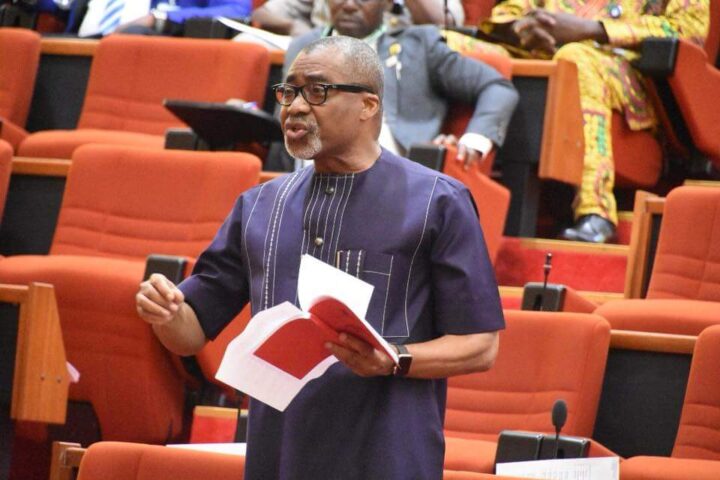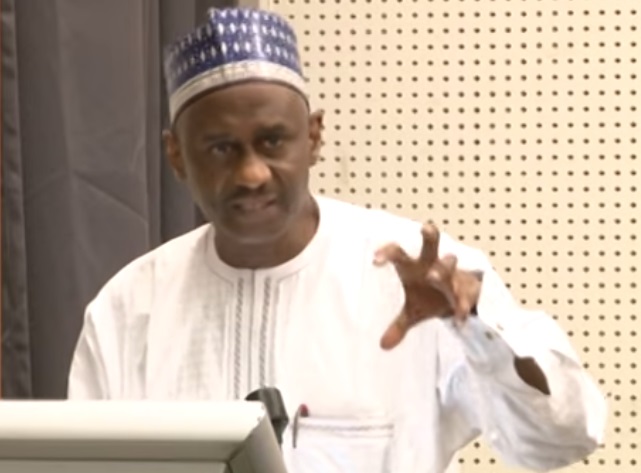Since the Macpherson Constitution of 1951 granted self-rule to all the three regions that made up Nigeria, the year 2007 was actually the very first time that virtually all the Nigerian states experienced a successful succession of leadership. Except perhaps in 1958 when Chief Obafemi Awolowo transmitted the power of the office of the Premier of Western Region to Chief Samuel Ladoke Akintola, neither the regions nor the states had the experience of a seamless transmission of power from one political office holder to the other. You will recall that the military was in power for the greater part of the interregnum and the Second and Third Republics did not last long enough for a successful transfer of power.
In 2007 however, for the very first time, Nigerian governors who were departing office after the end of their constitutional 8-year tenure of office, presided over the process of midwifing their successors. The same episode played out at the federal level. For the very first time in the history of the Nigerian state, a president presided over the transmission of power to another as Olusegun Obasanjo handed over the baton of office to erstwhile Katsina State governor, Umaru Yar’Adua. Even though this singularly significant moment in the history of Nigerian government was lost on the generality of Nigerians, the country was soon to witness the evil that is inherent in this seemingly harmless historical trajectory. Godfatherism, that ailment of deadly Italian mafia groups which found its way into politics as an abiding lexicon of power, became a phenomenon that Nigeria has since been grappling with ever since.
Godfatherism is becoming a major feature of Nigerian politics. It is a political process which features a deliberate corruption of the electoral process and power structure by a dominant political mentor, otherwise known as the godfather, who skews the process in favour of an anointed candidate, with the aim of securing returns in form of bribes, offices or prestige. How this is done is that, the godfather deploys wealth, power and position to secure party nomination for the godson, sponsors the candidate and manipulates the electoral process to his advantage. It can be likened to a political slave trade where the godfather, after succeeding in foisting the candidature of his godson on society, sits quietly thereafter to reap dividends of his evil machination. The repercussion on society is that merit is sacrificed and state funds are funneled into repaying the “good” of the godfather.
Though Nigerians had witnessed a vignette of godfatherism in Jim Nwobodo and Chimaroke Nnamani during the 1999 Enugu gubernatorial elections, Chris Uba, the barely literate but stupendously wealthy Anambra businessman exposed the destructive phenomenon in 2003. He had financed the election of Chris Ngige to be governor of Anambra, pulling him by the nape of his trousers to the Okija shrine to swear by an oath of abidance, at about 2am. At that midnight, a naked Ngige performed the rituals which involved dead bodies, his dangling member revealing the shame of godfatherism. When it was time to start drawing from his “investment,” Ngige reneged, details of which became a global embarrassment to Nigerian politics. A shameless Ngige, in his bid to invoke poet Gabriel Okara’s Piano and Drum, of a clash between culture and civilization, was to tell the world that he went to Okija with his bible! What the Ngige-Uba political scandal revealed was that merchandizing by political criminals had found its way into Nigerian elections where investments are made into the elections or selection of political office holders, with an eye on bountiful returns. The phenomenon of godfatherism is sustained by recourse to African traditional medicine where the godfather and godson go before grooves of renowned destructive shrines to swear oaths of allegiance.
Advertisement
In the process leading to the 2007 elections, governors with stupendous wealth from administering their states from 1999 to 2007, assumed the role of godfathers, sponsoring anointed successors to take over batons of power from them. They were apparently taking their cues from Abuja where Obasanjo had done same with Yar’Adua. From tinkering with the political process, to bankrolling with billions of state funds, virtually all of them eventually succeeded in extending their stay in power through protégés.
Then the cookies began to crumble. Some of the cookies were immediate, many took longer time. In Lagos’ Tinubu-Raji Fashola experiment, what many saw for almost four years was matrimony worthy of an example. Tinubu continued to reap the dividends of his ‘investments’ in Fashola. He was the de facto governor, determining the political barometer of Lagos politics, finance and prebends to political hirelings. Not until the re-election campaign of Fashola in 2011 did the cracks begin to be noticeable, revealing a godfather/godson as the proverbial seeds in a walnut pod, ostensibly in the distribution of largesse of power.
In many other states at this time, the matrimonies became a bedlam almost immediately. In Enugu for instance, Sullivan Chime was still a governor-elect when he started to undo all that his mentor and godfather did. He spent eight years trying to pull down the Ebeano house that midwifed him. Orji Kalu suffered same fate in Abia where his erstwhile Chief of Staff, T. A. Orji, who was in the EFCC custody while his election was taking place, eventually emerged governor. Orji spent his years in government firing ballistic missiles at Kalu who spent billions of state funds to skew the process in his favour. This was replicated in virtually all the states, even in the 2015 elections where the anointed godsons, having mutated to become godfathers themselves, attempted to foist their godsons as successors. In Anambra, Peter Obi, while shopping for a godson, sidestepped the generally accepted skewer-minded political class, and walked into the supposedly sane banking hall as he searched for an urbane, corporate world executive. He got Willie Obiano. Less than a year after, the strange, somber-looking Obiano had transmuted from the gentleman who couldn’t hurt a fly into a stone-hearted political pall-bearer who is strenuously presiding over Obi’s political funeral. Same is replicated in Kano where Umar Ganduje, erstwhile Rabiu Kwankwanso’s lickspittle, has today become a hydra-headed monster seeking to swallow his ex-boss. I am told that Emmanuel Uduaghan surreptitiously did his cousin, James Ibori in, even while serving his term in the UK slammer.
Advertisement
Less than a year into the 2019 elections, the same political malady is replaying itself. I forgot to state that, at the core of this scramble by governors to clone godsons to replace them is a frenetic desire to keep the skeletons in their cupboards safe from the world’s prying eyes. Many of the governors, after pillaging their states blind, so much that if the world gets to know details, they should be tied to the stakes and shot, embark on a process of putting veils on these maggots-dripping cupboards. They would be done for if “an alien” succeeds them! So they look for the most pliable of their coterie of hangers-on and fawners to succeed them. In many cases, they choose protégés implicated in the looting who would not play the Judas on them without also going down the drain. This is why commissioners of finance or protégés with whom governors have transacted illicit businesses during their tenures are most times the surest picks.
Experiences thus far since 1999 ought to have taught outgoing governors lessons of their lives; that anointing godsons can’t save them and the autumn of life after office they so much dread will come anyhow. In some cases, when these godsons, coming into office with momentary Messiah minds, see the extent of the rot and theft by their godfather predecessors, they are so miffed that they want to blow the whistle. May God save us from predators in Government Houses who want political immortality for themselves and shield of eyes from their loots, through striving to enthrone their godsons in power.
The budget conundrum
There have been back and forth brickbats between the presidency and the National Assembly over the cut of the 2018 budget which was signed by President Mohammadu Buhari on Thursday. Not only did the lawmakers make massive cuts of 4,700 projects in the budget presented to them by the presidency amounting to N347 billion, they introduced 6,403 projects of their own, amounting to N578 billion.
Advertisement
The arguments have been, since the job of the parliament is lawmaking, what is the propriety in the lawmakers appropriating and reprobating at the same time? In other words, why would lawmakers make laws and execute same law in one single breath? Those who have been involved in this parliamentary fleece in the last 18 years of Nigeria’s return to democratic practice have said that it is a funnel for corruption and self-enrichment which have become the testament of the National Assembly. Whatever constitutional lacuna gave the lawmakers the right to preside over the execution of projects, all in the name of constituency projects, is a terrible oversight of the framers of our constitution which must be corrected and amended.
This is however not to say that the presidency which allegedly loaded or inflated the costs of projects in the first instance, which the lawmakers cut, were imbued with any iota of patriotism as well. A thread links the presidency and the lawmakers: they are both vermin who want to line their esophagus. It is a clash akin to that between the thief and his abettor. I will advise we let them shout their throats out as none of them is doing this in the interest of country.
Kimono: A Rastaman remembers
The death of Nigeria’s respected reggae crooner, Ras Kimono, real name Ukeleke Onwubuya, on June 6, 2018, came to many lovers of his genre of music as a huge shock. The dreadlocked musician was reported to have slumped at the Murtala Muhammed International Airport, Lagos, as he awaited his boarding period on a flight to the United States. He was rushed to a hospital on Lagos Island and died thereafter.
Advertisement
For many of us who salivated for a Nigerian clone of respected reggae artistes like Bob Marley, Peter Tosh, U-Roy, I-Roy and African versions like Alpha Blondy and later, South African-born Lucky Dube, the emergence of Kimono, Blackky, Mandators and Orits Wilikie on the Nigerian reggae scene, after the departure of Terra Cota and the like, was delightsome. He fused fast-flowing rhythm into a danceable twang of guitar, with a Jamaican patois which heralded his arrival as a reggae icon. His songs, like those of our Jamaican reggae brethren, were activist in their rendering. He also threw the comb away like the natty dreadlocked reggae musicians of Jamaican descent and instantly became our icon too. What is not known is whether Kimono was also a Rastafarian and abided by a strict dietary regimen of Rastas; whether he was fascinated with the “roots” and herbs of sensemiliatoo. These are the abiding companions of our Jamaican reggae brethren. One never knew too whether he was also a worshipper of His Imperial Majesty Emperor Haile Selassie 1 of “I-thiopia.”
With vinyl like What a gwan? Under Pressure, Rumbar Stylee and many more, Kimono broke loose discotheques and had Rasta brethren shuffling their feet in a frenzy. I encountered Kimono while a student of the University of Lagos and he held for me a connect with this musical genre for which I was a consummate follower. Kimono’s death has left a huge gap on the Nigerian musical scene. Rest on i-tinually, I-thren Kimono, to whom I liv-iticate this piece.
Advertisement







